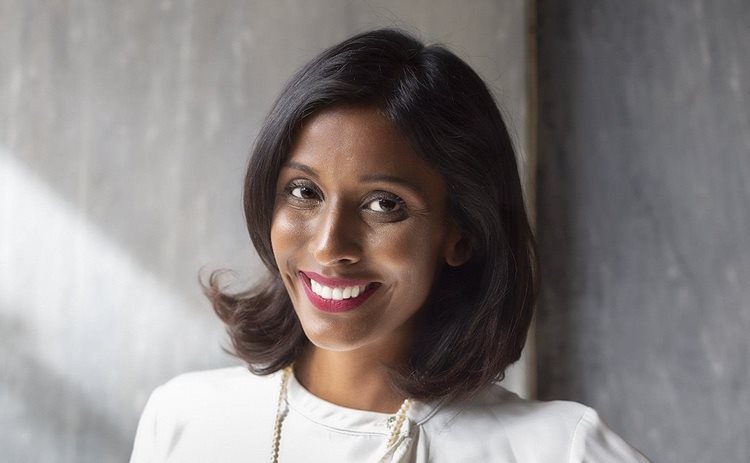
#WomensMonth: Verashni Pillay on making a comeback

Pillay is a former editor-in-chief of the Mail & Guardian and has won accolades from CNN, BBC and others. Fast forward to 2021, her media startup, explain.co.za has won a major international award, recognising the publication’s commitment to making news accessible to all. Its flagship project, The Weekly Wrap, was awarded “Best Project for News Literacy” in Africa in this year's Digital Media Africa Award, run by the World Association of Newspapers.
This Women's Month, we find out from Pillay about what it's like being a female in the media industry, the lessons she's learned along the way and she shares advice with the future generation of females like herself...
Can you tell us a bit about yourself?
My name is Verashni Pillay. I’m passionate about journalism, and its role in improving everyday citizens’ lives. I love this continent and want to be part of changing it for the better.
Could you briefly tell us about your career?
I had a pretty steep career trajectory in my early years. I got my start in digital journalism after studying at Rhodes University. I became editor-in-chief of the Mail & Guardian at 31 after working my way up the ranks at the publication. I specialised in digital news and media management and as I say in my bio, 'I relish the task of putting together the right team to create compelling and principled journalism'. I’ve had stints at Media24 and within broadcast as well.
What are some of the challenges that you've experienced as a female in the media industry?
The bullying that women in the industry face is obviously quite substantial. This is particularly true on social media and there have been many studies done on this throughout the years, globally. We also know that insults aimed at women over their work very quickly turn sexualised and violent. There is also a more subtle challenge in terms of becoming senior quite young as a woman newsroom leader.
Challenges include being second-guessed, gaslit and sheer aggression. I’ve had older men literally scream at me in the newsroom, in response to me asking questions about their work, politely. I’ve also had interviewers ask me questions they wouldn’t ordinarily ask a man, like one who harped on about my age when I became M&G editor-in-chief. As Anton Harber later told me, he was even younger than I was at the time, when he founded the Weekly Mail - the M&G’s predecessor!
Where I have made mistakes in my career - like the infamous HuffPost fake blog - I paid a much steeper price than other editors who made similar mistakes. For example, HuffPost and Soccer Laduma were both Media24 titles. Soccer Laduma once published fake quotes, but the editor, Peter du Toit, didn’t face anywhere near the same heat I did from Media24’s bosses or consequences to his livelihood and reputation.
In another example, Wits University’s State Of The Newsroom report spoke on one page about a mistake by male successor had made at HuffPost but used my name to illustrate the page carrying the story despite only my being mentioned fleetingly and having nothing to do with the error. They were made to issue a correction by the press ombudsman.
Just over a year ago, you started explain.co.za. What has the journey been like?
What’s always grabbed my interest is how to reach more people with the news they need to know - beyond the audiences mainstream news in South Africa reaches again and again. From my experience working on complicated investigative articles in the M&G, I knew from audience stats that too few people were reading it and engaging with the details. I also know that news tends to reach the elite, marginalising younger audiences, women, non-English speakers and those outside urban centres.
I started explain.co.za to answer these questions, as a side hustle alongside my main job. I decided to focus specifically on reaching women readers, who were juggling career, family and other commitments and often found the news alienating, but wanted to keep up with what was happening in their world. I eventually had the courage to leave and focus on it full time at the end of 2019… just before the pandemic hit! So it’s been a wild and humbling ride.
I never thought starting a small business could be so difficult. But we’ve made it and there have been some amazing milestones. Our Weekly Wrap, which summarises the news of the week in a conversational and easy to understand way via WhatsApp was recently named the best media literacy project in Africa by the World Association of Newspapers. We employ six full-time staff members including myself, mostly young black graduates, which I’m very proud of as someone who is passionate about creating jobs. And we reach about 30,000 people every week with our Wrap.
We have also won two grants and run an agency division that has successfully worked with big clients to dramatically increase their social media reach and engagement, and create other content marketing. It’s tough to make ends meet in the news business but we’re committed!
You're the former editor-in-chief of Mail & Guardian and Huffington Post in South Africa. What are the biggest lessons you've learned from your experiences?
Doing both those positions in my early 30s taught me an enormous amount. Being at that level at such high profile publications showed me firsthand how - and in some respects, why - our news model was so dramatically failing; failing both audiences and journalists, in that it was a struggle to create work we could be proud of with newsroom budgets always shrinking and the very news model under threat as the digital ad model shifted towards behemoths like Google and Facebook, leaving just crumbs for publishers to fight over.
I quickly realised that doing what I loved was harder than ever and that I couldn’t just focus on making quality content. I had to care, and figure out, a business model that could pay the bills and allow me to do what I loved to do, and have the impact I felt was needed in my country and world.
Also, scoring both huge successes and making big mistakes at both jobs really gave me enormous perspective - and courage! Once you’ve done all that, it’s easier to do something crazy like quit your job, start a business, and more.
You've also been acknowledged by receiving several awards. Could you share these highlights with us?
One of my first major awards was the CNN Africa Journalism Awards. My colleagues and I won for the first time in the new digital category that was introduced in 2012. In the early days of my career, it was often a struggle to enter awards as digital content wasn’t recognised! I successfully lobbied for this to be changed at the Standard Bank Sikuvile Awards here in SA and went on to win several of those. The latest award, as I mentioned, was for my startup’s flagship project, The Wrap, which you can read about here.
One of the most valuable awards was my selection as a Mandela Washington Fellow in 2018. I studied the basics of business in Austin, Texas. Both the experience of bonding with 27 other young entrepreneurs from across the continent and learning about business for the first time was incredible. It was like a mini MBA and gave me the skills I needed to start my business.
Awards aren’t the end game of course, but it’s amazing recognition and validation especially as the actual work of both journalism and entrepreneurship is quite difficult and solitary.
Can you comment on the transformation (or lack of) of how women are represented in the media industries?
It’s getting better, for sure, but it still needs work. The latest state of the newsroom report in South Africa shows that 33% of editors they surveyed were female as were 28% of board members.
What’s concerning for me though are the number of independent titles that don’t release this information and are clearly untransformed. Publications like the Daily Maverick do incredible work but have repeatedly refused to release their staff or shareholder demographers. This lack of transparency is at odds with the work we as journalists do and demand from others.
Independent media projects in SA are so exciting and there are so many new, incredibly quality projects popping up all the time like The Continent, Volume, Scrolla and Viewfinder, along with established ones like Daily Maverick and New Frame. It’s important that these as well as established traditional media houses all take diversity seriously at the senior level.
Are women, and specifically women of colour, still facing challenges in this industry? If so, what are these specific challenges and what can be done to change this?
The stats show that they are. Besides the ones I listed above, the report I mentioned noted, in terms of race, that around 70% of those editors and media board members surveyed were people of colour. It’s not clear how many of those are women. The specific challenges to empowering more women of colour in the media include:
- Lack of psychological support: This is true for everyone in the newsroom and increasingly more journalists are speaking about the need for this. Between the stories, they have to cover and the enormous stress of repeated retrenchments, mental health is more important than ever.
- Lack of female mentorship: When I started, female mentors of colour were few and far between. Ferial Haffajee has been a constant support to me and I try to be so for others. But I’ve definitely seen a bit of “pull her down” syndrome between women at different stages of my career - observing others and experiencing it myself. I like to think this is changing, however.
- Less to go around: The number of journalists in SA halved over a decade, according to some estimates. With resources in newsrooms shrinking, and fewer and fewer opportunities, the newsroom has become increasingly cutthroat and toxic. Because we live in a society that is still sexist in parts, women often bear the brunt of this. They also tend to be more conflict-averse and I have watched in sadness as many talented women have stepped out of journalism because they just can’t take the toxic culture anymore - nor should they have to.
What advice do you have to share with the future generation of females like yourself?
Firstly, I hope things are a lot easier for you than it is for us right now! There is a recognition across the world that what’s been allowed to happen to news media is putting democracies at serious risk. The rise of misinformation and the guttered business model is everyone’s problem. I think we’re going to see funding for journalism become more and more important and it won’t have to be this desperate hunt for money to produce the journalism that society needs to function.
So to the future generation, when that funding becomes available, grab with both hands. Put your hand up and lead. Too often it’s only men who take these opportunities. I can count on one hand the number of women-led media startups in this country and this means women’s voices, issues and needs are too often left out of the conversation.
As we celebrate Women's Month in South Africa, do you have any words of encouragement for all the women out there?
Women’s Month can seem trite given the insane level of GBV in this country. I would say as women, we need to be less hard on ourselves while also being more confident in making our voices heard and putting ourselves forward for more opportunities.































